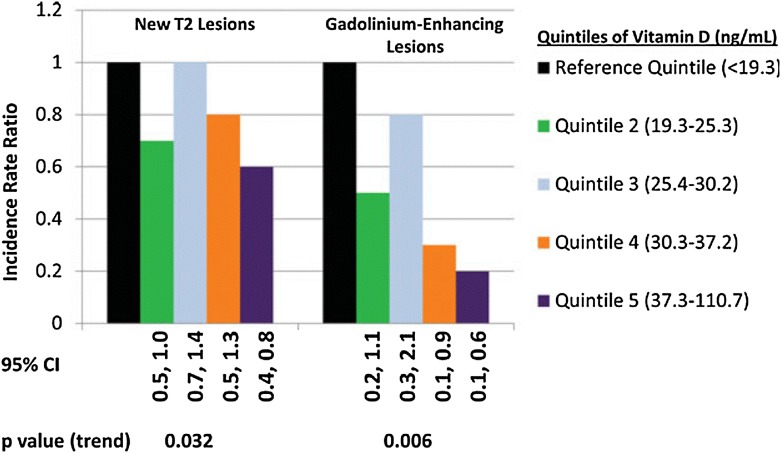Fig. 5.
Magnetic resonance imaging outcomes associated with quintiles of vitamin D in the EPIC study. EPIC is a 5-year longitudinal MS cohort study at the University of California at San Francisco, USA. Participants (N = 469) had clinical evaluations, brain MRI, and blood draws annually. MRI outcomes were associated with quintiles of vitamin D. In multivariate analyses, each 10 ng/mL (25 nmol/L) higher 25-hydroxyvitamin D level was associated with a 15% lower risk of a new T2 lesion (incidence rate ratio [IRR],0.85; 95% confidence interval [CI], 0.76–0.95; P = 0.004) and a 32% lower risk of a gadolinium-enhancing lesion (IRR, 0.68; 95% CI, 0.53–0.87; P + 0.002).
Reprinted with permission from Wiley Company [53]

